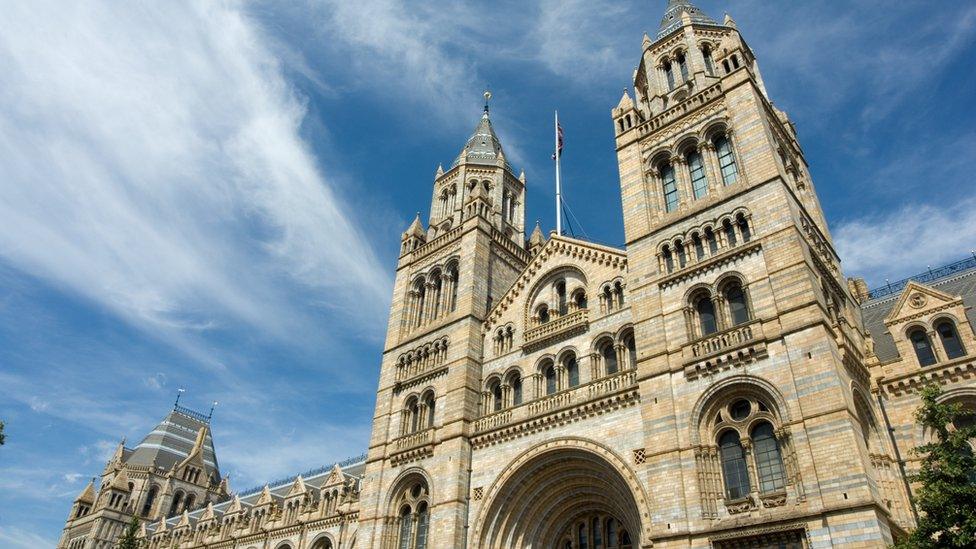New research centre for Natural History Museum in Shinfield
- Published

A third of items held by the Natural History Museum will be moved to the planned site in Shinfield
A new research centre is set to make the Natural History Museum's collections digitally available to academics around the world.
The planned £180m centre at the Thames Valley Science Park in Shinfield, Berkshire, is a collaboration with the University of Reading.
It is hoped the museum's assets will help studies of climate change, food security and biodiversity conservation.
The university said the centre would bring "significant opportunities".
It is intended to widen access to the collections for the museum's 350 scientists, their collaborators, and researchers worldwide.
The centre will house a third of the Natural History Museum's assets, including its mammal collections and non-insect invertebrates - such as corals, crustaceans, molluscs, and worms - totalling more than 27 million specimens.
'Unrivalled specimen data'
The museum said the biggest move of its collections since the 1880s would be necessary, as many items were currently at risk of deterioration and irreparable damage from being housed in unsuitable buildings.
It will also free up gallery space for public viewing at its famous site in South Kensington.
In a statement the museum said it would be "a much-needed acceleration and enhancement in the digitisation of the museum's collections".
The new centre would also provide "access for the global scientific community to unrivalled historical, geographic and taxonomic specimen data gathered in the last 250 years," it added.
Vice-chancellor of the University of Reading Prof Robert Van de Noort said it was an "exciting development" for the university.
"It could provide significant opportunities for our academics and students, as well as bringing benefits to the broader local area.
"This new relationship with the Natural History Museum should further enhance the international research success of both organisations," he added.
The new centre has been enabled through funding from the Department for Digital, Culture, Media and Sport as part of government efforts to increase investment in research and development.
If planning permission is granted, it is expected to be completed in 2026.

Follow BBC South on Facebook, external, Twitter, external, or Instagram, external. Send your story ideas to south.newsonline@bbc.co.uk, external.